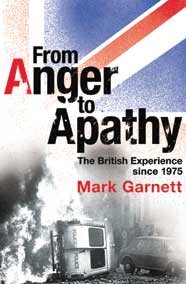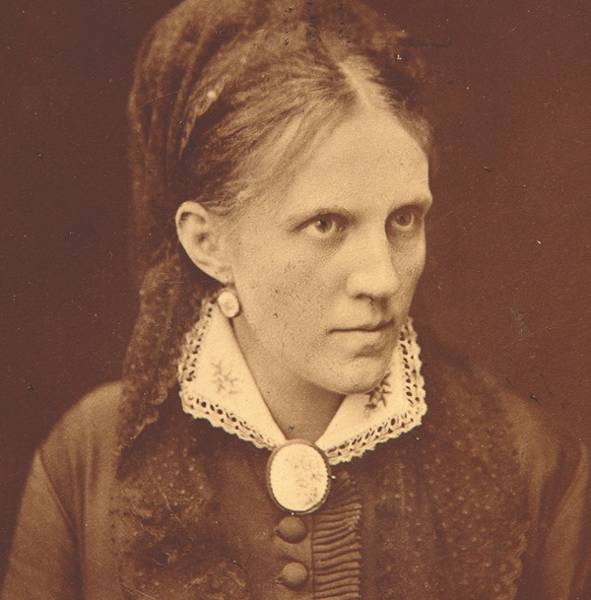In 1972 a young couple, the Wests, bought their first proper home, 25 Cromwell Street in Gloucester. They paid £7,000. Over time the husband carried out numerous alterations, improvements and extensions: it was the height of the fashion for DIY. Fred West’s version of the craze, though, had one horrible and eventually famous feature: his alterations included burying in the cellar and garden the remains of numerous young women he had murdered.
 In 2004 another, still youngish couple, the Blairs, also bought a house. This one was in Connaught Square, west London, and cost over £3 million. There was no particular breath of scandal involved, unlike the earlier property dealings of some of Blair’s ministers. Indeed Tony and Cherie were mocked by some for paying over the odds for a not especially desirable domicile.
In 2004 another, still youngish couple, the Blairs, also bought a house. This one was in Connaught Square, west London, and cost over £3 million. There was no particular breath of scandal involved, unlike the earlier property dealings of some of Blair’s ministers. Indeed Tony and Cherie were mocked by some for paying over the odds for a not especially desirable domicile.
It may seem just a bit scurrilous thus to link, however loosely, one of Britain’s most reviled criminal couples with its most spectacularly successful political one. Yet much of the appeal of Mark Garnett’s book comes from the way he juxtaposes stories from the most murderous reaches of Britain’s criminal world, like the Wests, with those of high politics. He wants – in a sometimes tortuous way – to argue for a powerful connection between the failings of the political class, and the horrors which those at the bottom of society inflict on one another.
Some connections are plain enough. The stark discrepancy between the property prices of these two similar-sized houses, even taking inflation and geographical divergences into account, points to one of modern Britain’s most startling social trends. Garnett sees this as part of the ever-increasing dominance of British life by amoral, acquisitive individualism. But he can’t decide if he is merely describing social trends such as these, or arguing against them, for two very different kinds of book jostle together within these pages.
There is a general survey of Britain since 1975, sometimes vivid and entertaining, but much of it with an inescapably cut-and-paste character, compiled largely, it appears, from newspaper headlines. And then there is an impassioned, repetitive lament at the political corruption, cultural bankruptcy and general “malaise” which he sees as all-pervasive in today’s UK. The first is competent but little more, the second occasionally brilliant but wildly over the top. It’s an incessant polemic, part bang on target, part utterly silly, against a huge range of targets. Few major actors in modern British life escape blame, but Blair and Rupert Murdoch top the hate list. And despite the author’s frequent claims to the contrary, those two very different texts are not effectively integrated by any clear overall structure of argument.
Garnett’s background is in Conservative politics. He’s worked professionally for the party, and as a biographer of Keith Joseph and Willie Whitelaw. But here the stance from which he attacks is seemingly of the far left: almost the only figures for whom he expresses any sympathy are protestors, from rebellious students to striking miners.
The selection of themes sometimes seems rather haphazard. Devoting many dull pages to the 1975 Euro referendum campaign, for instance, is rather pointless. It’s also an intensely “internalist” account, and indeed an overwhelmingly London-centred one. He says almost nothing about Scotland or Wales, and a summary paragraph of “excuses” for that Anglocentricity isn’t enough to cover for it. International affairs are invariably just vague and distant noises off the London stage.
The cultural references too seem pretty random, though much is claimed for them – including the bizarre notion that punk rock “was at least partly responsible for the subsequent cultural divisions within British society” (I like that “at least”). Later on, Garnett suggests at great length that actually it wasn’t so much the Sex Pistols as the Sex Industry that’s to blame for cultural decline and division. The unstoppable rise of unregulated porn is held responsible for an implausibly wide range of Bad Things, including most of the era’s more notorious murders. At times, Mark Garnett sounds a little like his namesake, ‘70s-sitcom antihero Alf. At others, the voice is more like a bizarre mixture of Arthur Scargill and Mary Whitehouse – and if nothing else, this breezy trot through 30 years’ forgotten cultural icons will inform younger readers who she was, and why she was once important.
Much of Garnett’s introduction is devoted to explaining why the title he chose is actually all wrong: the story of change from the ‘70s to the ‘90s is not one of “anger to apathy”, nor of public welfare to private greed. All the negative trends were fully in evidence already in 1975; so much so that in 2007 we “are still stuck in the ‘long late 70s’”. Well, if that’s so, then surely Garnett should have done one or more of three things. He could have changed his title: though From Apathy to Apathy doesn’t have a very compelling ring to it. He might have started his story further back – because if the origins of the great malaise don’t lie in the ‘70s or ‘80s, they must come from some earlier time which he doesn’t cover. Or he could have scrapped the whole project.
From Anger to Apathy is published by Jonathan Cape

